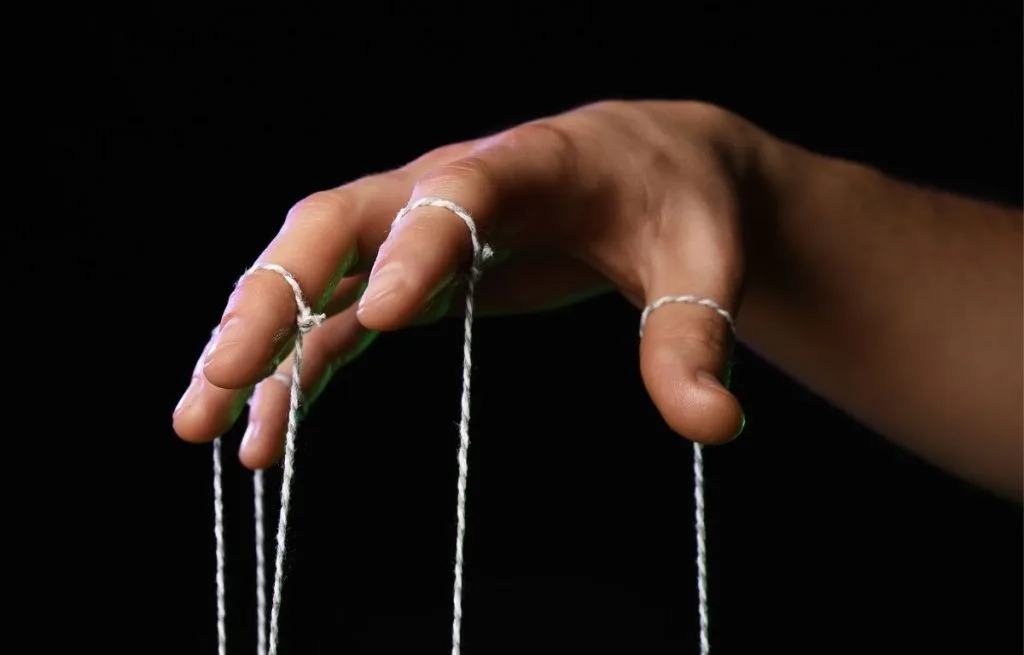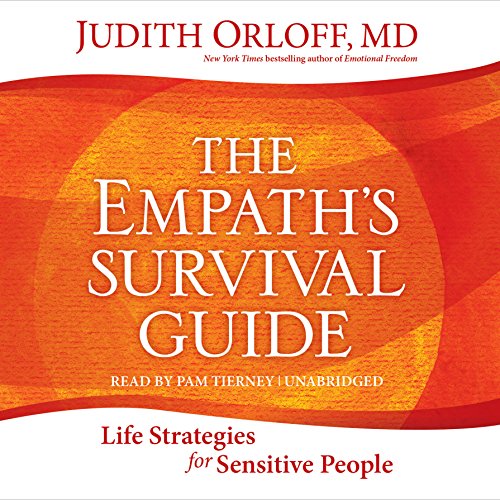Have you ever wondered why empaths often find themselves drawn to narcissists?
As an empath, you possess a heightened ability to sense and understand the emotions of others.
This remarkable gift can, at times, make you vulnerable to forming relationships with individuals who might not have your best interests at heart.
Narcissists, on the other hand, exhibit traits such as a lack of empathy, grandiosity, and an insatiable need for admiration.
Insight: Experts estimate that up to 5% of people have Narcissistic Personality Disorder (NPD), meaning that this dynamic is not uncommon.
So, why would two seemingly opposite types of individuals gravitate toward each other?
This article will explore the underlying reasons behind this intriguing connection between empaths and narcissists.
By understanding this complex relationship dynamic, you'll be better equipped to navigate your emotional interactions and make more informed choices about the people in your life.
Read on to uncover the factors that create this powerful and often tumultuous attraction between empaths and individuals with narcissistic tendencies.
The Attraction Between Empaths and Narcissists

The Magnetic Allure of Opposites
You might have heard the saying “opposites attract,” and this rings true when discussing the connection between empaths and narcissists.
As an empath, you possess a heightened sensitivity to the emotions of others, making you a compassionate and understanding individual.
On the other hand, narcissists lack empathy and are focused on their own needs and desires, often manipulating others for their benefit.
Dr. Judith Orloff, a renowned psychiatrist and empath herself, explains the appeal for narcissists:
“What narcissists see in empaths is a giving, loving person who is going to try and be devoted to you and love you and listen to you.”
This dynamic creates an intriguing attraction between the two, as empaths are drawn to the charm and grandiosity of narcissists, while narcissists revel in the admiration and support they receive from empaths.
Their Unlikely Synergy
In a relationship between an empath and a narcissist, their contrasting traits can seem complementary at first.
As an empath, your natural instinct is to help and heal others, and you might find yourself trying to “fix” the narcissist in your life.
Narcissists, on the other hand, crave validation and emotional nourishment, which you are more than willing to provide.
While this may seem like a harmonious arrangement at first, it often leads to an imbalance in the relationship, as the narcissist takes advantage of your kindness and selflessness.
Your constant support becomes an endless source of nourishment for the narcissist but leaves you feeling drained and unfulfilled.
It's important to recognize the dynamics at play in such relationships and protect your own emotional well-being.
Understanding the nature of this attraction can empower you to make healthier choices in your relationships and foster connections that promote mutual growth and respect.
How Narcissists Manipulate Empaths

Emotional Vampirism
As an empath, you may find yourself drawn to narcissists because of their charming and seemingly magnetic personalities.
However, unbeknownst to you, narcissists often engage in a process called emotional vampirism.
This involves feeding off your emotional energy and the compliments you give them in an attempt to boost their own self-esteem.
Narcissists can leave you feeling emotionally drained and exhausted.
To protect yourself from this phenomenon, it's crucial to set emotional boundaries and be mindful of how much energy you're investing in the relationship.
Reality Distortion: Gaslighting
Gaslighting is another common manipulation tactic used by narcissists in their dealings with empaths.
Dr. Ramani Durvasula, a licensed clinical psychologist and expert on narcissism, says,
“Gaslighting qualifies as a form of emotional abuse that involves denying a person’s experience and making statements, such as “that never happened,” “you’re too sensitive,” or “this isn’t that big a deal.”
Gaslighting makes you doubt your feelings, perceptions, and memories, leading you to question your sanity.
Narcissists often use gaslighting to maintain control over you and prevent you from recognizing the true nature of their manipulative behaviors.
To counteract gaslighting, it's essential to trust your intuition and seek external validation if necessary; confide in friends or a therapist who can help provide perspective on the situation.
The Subtle Tyranny of Narcissistic Control
Lastly, narcissists aim to control empaths through various means, including emotional manipulation and constant degradation.
Narcissists may try to isolate you from your support networks, making you more dependent on them for emotional support.
Doing so gives them control over your thoughts, feelings, and actions.
One way a narcissist can control you is by draining your energy through a series of subtle manipulation tactics, convincing you to stay in the relationship even when it's harmful to your wellbeing.
Recognizing these control tactics and seeking help from trusted individuals is important to break free from the manipulation.
The Impact on Empaths in Such Relationships
Identity Erosion
When you, as an empath, enter a relationship with a narcissist, one of the most significant impacts it can have on you is the loss of your identity.
This happens because narcissists often demand constant attention and admiration and make everything about themselves.
As a result, you may find yourself only existing to meet their needs while suppressing your own emotions and desires.
Over time, this can lead you to lose touch with your true self, feelings, and needs.
Emotional Drain and Exhaustion
Empath-narcissist relationships are typically marked by an emotional drain for the empath.
You tend to absorb the negative energy around you because you are highly sensitive to others' emotions.
Narcissists often manipulate your empathy, draining your emotional reserve for their benefit.
Not only does the narcissist demand emotional support, but they also return very little, if any, support to you in return.
This imbalance creates an emotional exhaustion that can be challenging to recover from.
Over time, the constant demands can significantly affect your mental and emotional well-being.
Even after exiting the relationship, the emotional exhaustion from your time spent with the narcissist can linger.
It's essential to prioritize healing and self-care to regain emotional balance and well-being.
As Shahida Arabi, a bestselling author known for her work on self-care and recovery from emotional abuse, says:
“In order to resist the “dine and dash” strategies of a ravenous emotional vampire, empaths have to learn to nourish themselves with self-care rather than settle for crumbs in their relationships.”
It's crucial to recognize these effects on you as an empath when you're in a relationship with a narcissist.
By understanding the impact, you can take steps to regain agency, practice self-care, and, if necessary, leave the relationship to protect your emotional and mental health.
Escaping the Cycle: A Path to Freedom

Reestablishing Boundaries
As an empath, it's crucial for you to reestablish boundaries to break the toxic cycle with a narcissist. This process can be broken down into several critical steps:
- Communicate Clearly and Assertively: Be honest about your needs and express them with confidence. Don't leave room for misinterpretation.
- Learn to Say ‘No': It can be tough to refuse anyone, especially a narcissist, but saying ‘no' when necessary is vital for maintaining healthy boundaries.
- Avoid the Trap of Self-Sacrifice: As an empath, you may be inclined to put others' needs before your own. Resist this urge and understand that your needs are just as important.
- Maintain Self-Respect: Do not allow anyone to undermine your self-worth. Remember, respect from others begins with self-respect.
- Prioritize Your Well-being: Your health and happiness are paramount. Don't compromise them for the sake of others.
- Set Healthy Boundaries: Defining clear limits will safeguard your emotional wellbeing from narcissists and help you regain your sense of self.
- Disengage from Negative Influence: Step back from people, especially narcissists, who drain your energy and bring negativity into your life.
For more insights and practical advice on navigating relationships as an empath, consider picking up a copy of Dr. Judith Orloff's “The Empath's Survival Guide: Life Strategies for Sensitive People” – a comprehensive resource to empower your journey towards understanding and self-care.

The Empath's Survival Guide is an invaluable resource for empaths who want to develop coping skills in a high-stimulus world while embracing their gifts of intuition, compassion, creativity, and spiritual connection
The Power of Support
One of the most effective ways to break the cycle is by seeking support from friends, family, or professional therapists.
Share your experiences and emotions with people you trust, as this can help you better understand your situation and build a support system.
Remember, you don't have to face this challenge alone.
Connecting with others who have been through similar experiences, such as support groups or online forums, can also provide valuable insight and encouragement.
Journey to Healing
Healing from a relationship with a narcissist takes time and patience.
Make a conscious effort to focus on self-care activities, such as exercising, getting enough sleep, and maintaining a healthy diet.
Engaging in activities you enjoy, like hobbies or social events, can help you rebuild your sense of identity and self-worth.
It's also important to practice forgiveness towards the narcissist and yourself to let go of any lingering resentment.
This process might be challenging, but it is essential for moving forward and preventing future toxic relationships.
Thank you, I hope you enjoyed this article on why empaths fall for narcissists. You may also enjoy the empaths survival guide to energy vampires.
Alan is the founder of Subconscious Servant. He has a passion for learning about topics such as spirituality and the metaphysical world. The thing he loves to explore most though is manifesting with the law of attraction ✨.


